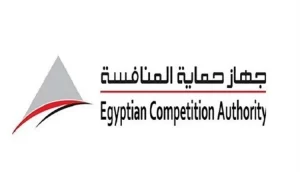On 11 July 2019, Presidential Decree No. 335 for the year 2019 regarding the establishment of an arbitration center for the settlement of disputes arising from the application of laws related to non-banking, financial transactions (the “Decree”) was published in Egypt’s Official Gazette. The Decree entered into force as of the next day of its publication (i.e., on the 12th of July 2019).
The issuance of the Decree constitutes an enforcement of the provision of Article 10 of Law No. 10 of the year 2009 concerning the regulation of supervision over non-banking, financial markets and instruments.
Hailed by some to be a positive step to promote the use of arbitration as a dispute-resolution mechanism, it is important that we address and examine a number of issues, including the legal nature of the Center, its scope of work and its composition, in order to provide a preliminary assessment.
The Legal Nature of the Center
According to the Decree, the newly established center shall carry the following name: “The Egyptian Center for Voluntary Arbitration and the Settlement of Non-Banking, Financial Disputes” (the “Center”). The Center is a non-profit entity that enjoys an independent juridical personality. However, the Decree remains silent as to the nature of the Center’s independent juridical personality and whether this personality is a “public” or “private” one.
This ambiguity and silence render it crucial that we examine certain factors, such as the management of the Center, its resources and budget.
The Center’s Scope of Work and Composition
As per the clear wording of the Decree, the Center’s scope of work extends to encompass any and all disputes that arise from the application of laws concerning non-banking, financial transactions provided that disputing parties agree to refer an existing or future dispute(s) to arbitration under the auspices of the Center. In other words, the nature of arbitration is voluntary, not compulsory.
In addition to arbitration, the Center is explicitly empowered to exercise other forms of dispute resolution, such as mediation and conciliation. However, it should be noted that the Center’s scope of powers shall be governed and limited by the agreement of disputing parties. For instance, if disputing parties agree to arbitration to the exclusion of mediation and conciliation, the Center shall be bound by the common intention of the parties and shall refrain from carrying out any action that violates such agreement.
Moreover, with respect to the management of the Center, this is entrusted to a Board of Trustees (the “Board”) headed by the Financial Regulatory Authority (the “FRA”). Membership of the Board includes the Deputy-Head of the FRA and four experts in the field of arbitration and settlement of disputes to be chosen and appointed by the Head of the FRA for a four-year term that can only be renewed once. The Board’s mandate extends to any act that is necessary for the achievement of the Center’s goals and objectives. This includes, for example, the following:
-
- Suggesting the rules and regulations of the Center.
- Adopting the rules of appointing experts who may be chosen to mediate or settle a dispute and adopting the rules and regulations that must be met by the arbitrators.
- Adopting the conflict of interest rules to be applied to arbitrators, experts and the Center’s management and employees.
The Center’s Financial Resources and Budget
As per the provision of Article 7 of the Decree, the Center’s financial resources shall come only from specific sources. These sources include funds and assets allocated to the Center by the Egyptian State or the FRA, arbitration and dispute resolution fees, donations made to the Center and any other financial resources approved by the Board taking into consideration the objectives of the Center. The aforementioned Article also provides that the Center shall have an independent budget, an account at the Central Bank, and that the Center shall be governed by the Government Accountability Law.
Market Reaction
It is clear that one of the underlying reasons for the issuance of this Decree is the Egyptian Government’s keen interest in ensuring the development of the non-banking, financial sector. The message that the Decree is intended to send to concerned parties can be said to be that of reassurance that the will of contracting parties shall be observed and respected, including the choice of forum and dispute resolution. This is definitely a positive step.
However, as stated above, there remains ambiguity concerning the legal nature of the Center’s juridical personality (public or private). In light of the absence of an explicit provision on this point and the existence of other factors (such as the Center’s management, financial resources and budget), it could be said that all factors hint to a ‘public’ nature. This can arguably result in concerns that relate to the impartiality and neutrality of the Center as an arbitration institution and ultimately lead investors, whether foreign or national, to avoid selecting the Center as an arbitral institution. This will especially be the case when a state organ or a state-controlled-entity is one of the parties to the dispute.


